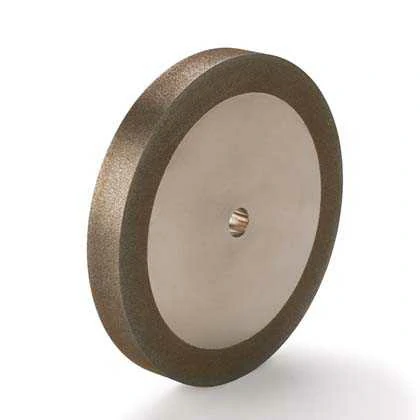How about starting a grinding wheel business?
Starting a grinding wheel business can be a lucrative venture in today’s industrial market. With the increasing demand for precision grinding tools in various industries, there is a great opportunity to establish a successful business in this field. In this article, we will explore the potential benefits and challenges of starting a grinding wheel business.
First and foremost, let’s discuss the advantages of entering the grinding wheel industry. One of the key benefits is the consistent demand for grinding wheels across different sectors. Industries such as automotive, aerospace, construction, and manufacturing heavily rely on grinding wheels for precision cutting, shaping, and polishing of various materials.
Moreover, the global market for grinding wheels is expected to grow significantly in the coming years. As new technologies and materials emerge, the need for advanced grinding tools will continue to rise. This presents an excellent opportunity for entrepreneurs looking to enter this industry.
Furthermore, starting a grinding wheel business allows you to tap into a niche market. While there are already established players in the industry, focusing on a specific target market or offering specialized grinding wheel solutions can help differentiate your business and attract customers.
However, it is important to recognize the challenges associated with starting a grinding wheel business. One of the major hurdles is the initial capital investment required to set up a manufacturing facility and purchase necessary equipment. Additionally, ensuring a consistent supply chain for raw materials and maintaining quality control can be demanding tasks.
To overcome these challenges, it is crucial to conduct thorough market research and develop a solid business plan. Identify your target market and understand their specific needs. Determine the appropriate production capacity based on market demand and carefully calculate your financial projections.
Networking and building relationships within the industry can also be beneficial. Collaborating with suppliers, manufacturers, and distributors can help streamline your supply chain and ensure a steady flow of raw materials and distribution channels for your products.
In terms of marketing and sales, it is essential to develop a strong brand identity for your grinding wheel business. Emphasize the quality, durability, and precision of your products to attract customers who value these attributes. Establish an online presence through a website and use digital marketing strategies to reach a wider audience. Participate in trade shows and exhibitions to showcase your products and network with potential clients.
Lastly, continuous research and development are crucial in this industry. Stay updated with the latest advancements in grinding wheel technology and invest in innovation to stay ahead of your competitors. Developing new products or improving existing ones can give your business a competitive edge and help you capture a larger market share.
In conclusion, starting a grinding wheel business can be a profitable venture with the right strategy and execution. The consistent demand for precision grinding tools and the potential for growth in this industry make it an attractive opportunity for entrepreneurs. However, it is essential to carefully plan, invest in quality control, and continuously innovate to ensure long-term success in this competitive market. With determination, dedication, and a well-executed business plan, you can establish a successful grinding wheel business that meets the needs of various industries.
.webp)




